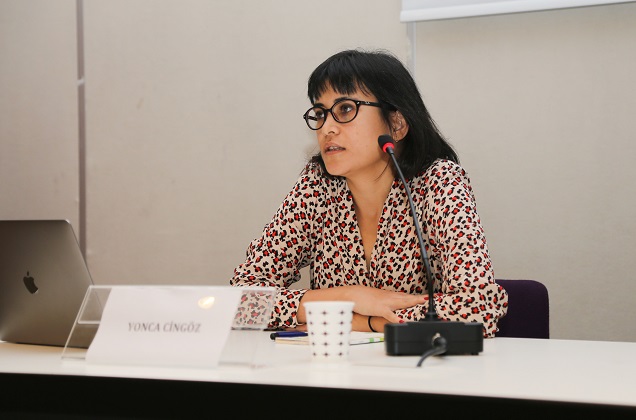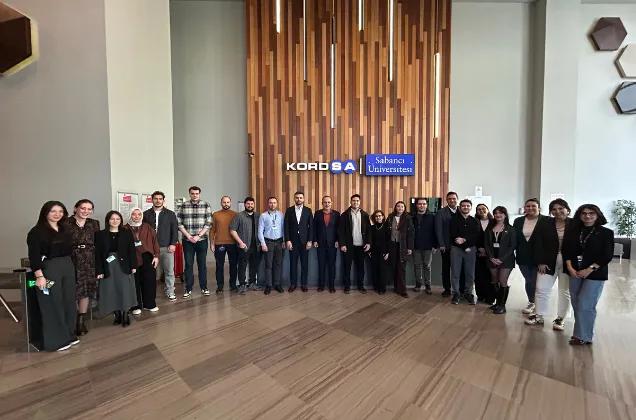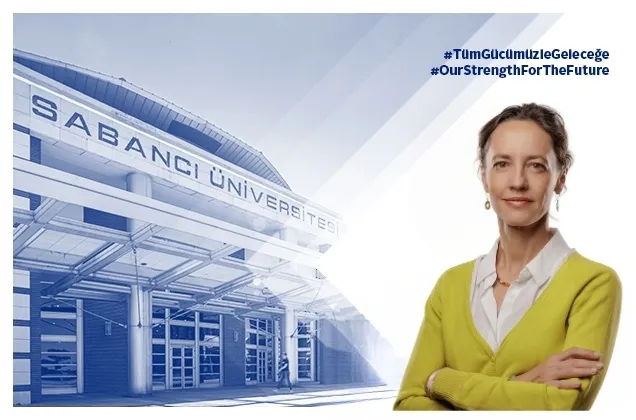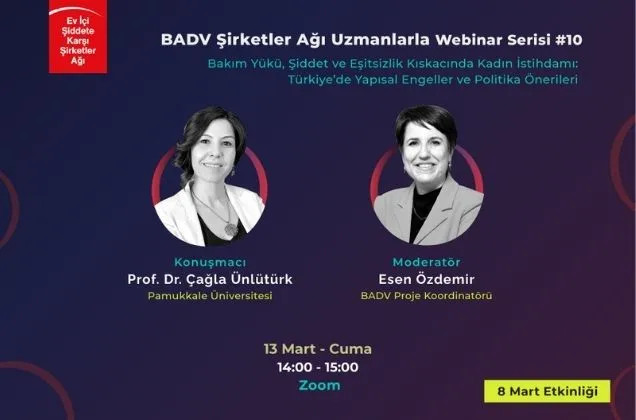09/03/2021
Our graduate Yonca Cingöz, who won a Şirin Tekeli 2020 Research Award with her work titled “Emotion/Affect, Temporality, and Safe Space in The Feminist Movement: An Example of Relations between Feminist Activists in Istanbul in the 2000s”, says, “This award coincided with a time when I paused due to the pandemic at the first stage of my field study and, similar to many of my friends having their doctorates, I was about to fall into pessimism about the fate of my dissertation, and it was a very valuable support that increased my motivation.” She adds, “I find it important that Sabancı University, of which I am a graduate, supports both SU Gender and relevant programs and courses, as well as opening space for students and academics in an effort to create a safe campus.”

We conducted a special interview with our graduate Yonca Cingöz with the occasion of the Şirin Tekeli 2020 Research Awards.
First of all, can you briefly talk about yourself?
Of course. I was born and raised in Ankara and moved to Istanbul when I got into university. I studied at Sabancı University on full scholarship and graduated from the Social and Political Sciences Program in 2004. I started my master's degree at Istanbul Bilgi University’s Cultural Studies Program, but after my father's death, my circumstances changed, and due some negative experiences I had with academics, I stepped into working life. I took a long break from my academic works. I worked as a journalist, an editor. I was a coordinator at an association in the field of publishing. In 2013, I completed my master's degree by submitting my thesis titled “Feminist Philosophy and Deleuze”. I became a mother the following year. In 2017, I started my doctoral studies at the Department of General Sociology and Methodology, Mimar Sinan Fine Arts University. I am currently a coordinator at a foundation and I am in the dissertation stage of my doctorate. I have also been doing freelance non-fiction translations for several years. Two of my translations have been published.
How did you decide to apply for the Şirin Tekeli Research Award? How did the process go?
I was following the studies that received the Şirin Tekeli Research Award since I was very interested in current feminist work. I was thinking of applying when I got to the doctoral dissertation stage. Actually, it went as I planned. Therefore, my award-winning research proposal is based on my doctoral dissertation. It covers part of its fieldwork. I worked hard for about a month during the application process, maturing my research proposal. This allowed me to review and update the literature review and field research plan of my doctoral dissertation.
Could you tell us a little bit about the research subject? What stage are you at right now with the research process?
The title of my research subject is “Emotion/Affect, Temporality, and Safe Space in The Feminist Movement: An Example of Relations between Feminist Activists in Istanbul in the 2000s”. I will investigate the relationships between activists who took part in the feminist movement in Turkey in the 2000s in the context of emotion/affect, temporality, and safety. My work, which will be based on in-depth interviews with activists involved in independent feminist organizations active in Istanbul during this period and document review, will feed on methods of narrative analysis and discourse analysis, as well as current literature that looks at the sharing and transfer of feminist activist memory, remembering feelings of activism. First, I did my literature review and completed three interviews. I will continue with journal reviews and interviews.
Could you share your expectations and goals about your research?
At the end of my research, I expect to reach initial conclusions about the possibilities of creating feminist “safe spaces” and improve this analysis by sharing and discussing it with relevant researchers in the presentation. Immediately after the presentation, I will proceed to the analysis process of my doctoral dissertation work.
Could you tell us about your feelings and thoughts about the award?
This award coincided with a time when I paused due to the pandemic at the first stage of my field study and, similar to many of my friends having their doctorates, I was about to fall into pessimism about the fate of my dissertation, and it was a very valuable support that increased my motivation, and a lifelong memory. I would like to take this opportunity to thank the SU Gender team and the jury members who contributed to the continuation of this award so that we are aware of many horizon-opening research processes every year.
How do you see gender and women's studies conducted in Turkey? Could you evaluate SU Gender's work in this context? Could you talk the contribution of Sabancı University to this field in general?
I see gender and women’s studies in Turkey as one of the most fundamental veins that shape feminist subjectivity and feed feminist activism. Many young women participated in street activism by studying in these departments and with the excitement of what they learned from their teachers, who gave life to these departments, or influenced and changed those around them by reflecting feminist ideas and attitudes to everyday life. In a time when anti-gender movements are on the rise in the world, when the budgets of gender, women, and sexuality studies departments and research centers are being cut, and their voices are being silenced, the importance of maintaining presence and activity is even greater. For me, SU Gender has a very valuable position among the centers in this field, as it strives to spread knowledge and experience to very different groups by adopting various forms of activity such as giving awards, training, memory walks, not only limited to academic programs and publications in this field thanks to its hardworking team. I find it important that Sabancı University, of which I am a graduate, supports both SU Gender and relevant programs and courses, as well as opening space for students and academics in an effort to create a safe campus.




